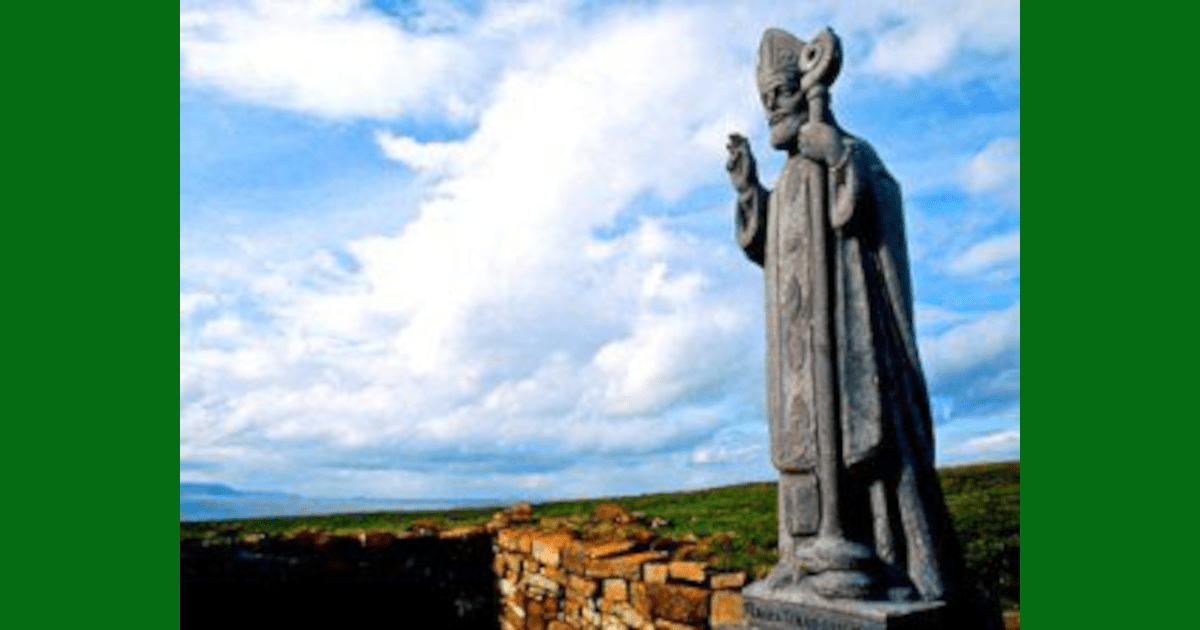“Patrick: A Prophet for Social Justice”
I must admit the above title caught my eye. I never considered Patrick as a Prophet for Social Justice. Wander down this path with Kevin Ahern. You may be surprised.
St. Patrick is one of a handful of Christian saints, along with Mary, Valentine, and Francis, celebrated in popular culture. Patrick’s feast day is commemorated with green rivers, green beer, and parades. But Ahern asks, “Who was the real St. Patrick?”

In search of St. Patrick
Ahern writes…
Most people know that the missionary Patrick (Patricius or Pádraig) helped to bring Christianity to Ireland in the 5th Century.
Some may remember how his first visit to the island was as a slave.
Sadly, only a few may remember Patrick’s opposition to structural injustice and his prophetic defense of victims of violence and human trafficking. (Patrick himself was a victim of violence and slavery.)
As with so many of our saints, Patrick’s radical application of the Gospel has been domesticated and stripped of its challenging message.
Rather than witnessing to the prophetic and loving call of the God’s mission, Patrick has been turned into a caricature to decorate commercial marketing schemes and Hallmark cards.
St. Patrick in his own words
Going beyond Hallmark greetings, Ahern offers St. Patrick’s own words from his autobiographical Confessio.
Patrick begins by denouncing those who engage in the slave trade. He laments deeply the loss of all those touched by the evil of slavery. The participation in, what we may now term a structural sin, he suggests, dehumanizes both the victim and the perpetrator/
“I don’t know which is the cause of the greatest grief for me: whether those who were slain, or those who were captured, or those whom the devil so deeply ensnared” (4).
“Therefore I ask most of all that all the holy and humble of heart should not fawn on such people, nor even share food or drink with them, nor accept their alms, until such time as they make satisfaction to God in severe penance and shedding of tears, and until they set free the men-servants of God and the baptized women servants of Christ, for whom he died and was crucified….” (7).
What St. Patrick calls us to today
Ahern continues
Patrick’s denunciation of human oppression as a result of greed is sadly very relevant to our present context.
Millions of people (a number of them proudly of Irish descent) profit from the mistreatment, low wages and dehumanizing working conditions imposed on others. Our participation in these systems implicate all of us who benefit from the oppression of others:
Like the prophets of the Hebrew Bible, Patrick highlights the fact that God does not tolerate injustice:
“The Most High does not accept the gifts of evildoers. The one who offers a sacrifice taken from what belongs to the poor is like one who sacrifices a child in the very sight of the child’s father
Peter Behrens wonders how St. Patrick, himself a victim of violent enslavement, would view the current social and political debates about immigration.
How do we look upon those migrants who are coming to the United States today from Latin America, Asia, and the Middle East? Like my Irish great-grandparents, these communities are held as suspect and seen as being un-American (think of the continued profiling of Muslim-Americans).
Elsewhere Ahern offers some sobering reflections on the discrimination faced by his Irish grandfather in comparison to the institutionalized racism so many still face today. He challenges many false narratives popular today.
Questions
- Were you aware of this dimension of St. Patrick?
- What relevance does this have to our day?
Originally posted on Vincentian Mindwalk
Tags:







0 Comments